Ma Kuai-dao often fantasizes about his neighbor, the scholar Xu Shen-yu. Ma imagines that he could do his best work on Xu’s sinewy frame, well-proportioned torso and muscular legs. A series of historic events enables Ma to get closer to the object of his musings.
Ma’s reveries are a central plot device that keeps the action moving along at a rapid pace in The Scholar and the Executioner (秀才與劊子手), a contemporary Chinese play produced by the Shanghai Dramatic Arts Center (上海話劇藝術中心), which makes its Taiwan debut beginning next Thursday at Taipei City’s National Theater. The play, which is part of Taipei Arts International Association’s (TAIA) 2008 World Drama Series, runs until June 8.
Billed as a black comedy, the period piece takes place during the twilight of the Qing Dynasty — a time of considerable social upheaval.
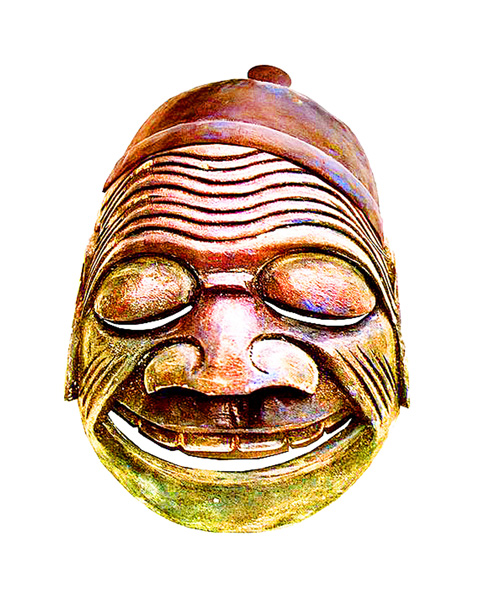
PHOTO COURTESY OF TAIPEI ARTS INTERNATIONAL ASSOCIATION
The award-winning script, written by Chinese theater practitioner and theorist Huang Wei-ruo (黃維若), humorously follows the lives of two men who are affected by the government’s attempt to modernize China’s backward society and, in the process, maintain power.
The first is the executioner and torturer “Fast Knife Ma” (Ma Kuai-dao, 馬快刀). Hailed throughout the region as a professional torturer who inflicts the maximum amount of pain on his victims by shearing off their flesh with a variety of knives — a process known as lingchi (“death by a thousand cuts,” 凌遲) — Ma revels in the adulation that crowds of bystanders bestow on him while engaged in this work.
Xu Shen-yu (徐聖喻) is an unaccomplished scholar who has passed the county examination, a minor test that confers a modicum of reputation on the candidate. But Xu has dreams of becoming a famous official in the imperial bureaucracy and spends all his money preparing for and sitting the provincial examinations, which he always fails. Penniless, he takes a job at a private school to prepare students for the examination he himself has passed.
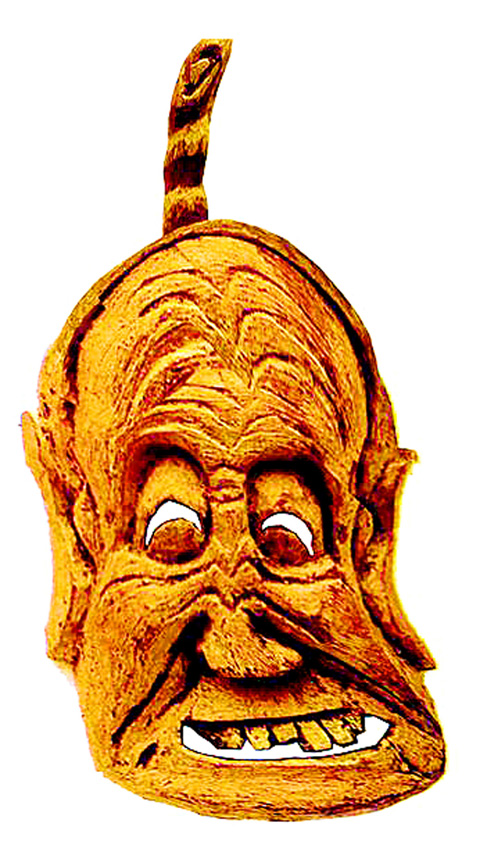
PHOTO COURTESY OF TAIPEI ARTS INTERNATIONAL ASSOCIATION
One day, Fast Knife Ma’s fantasies of slicing up his neighbor are interrupted by an imperial edict abolishing the national examination system and death sentence. Fast Knife immediately goes into a depression that is only alleviated when his wife, Zhi Zi-hua (梔子花), convinces him to begin a new, and to Ma, less honorable profession: that of a butcher.
At first, Ma finds his job boring — the squeals of the animals are no substitute for the screams of his former victims — but soon gains a certain degree of satisfaction through the process of removing flesh from bone. As Ma’s skills as a butcher improve, he draws the same crowds he did in his former incarnation as torturer and executioner.
With Ma’s newfound success he convinces Xu to quit his job as private tutor and become a butcher as well — an interesting social reversal because the butcher now becomes teacher to the scholar. Tension is also created because the audience is unsure whether Ma will skin his neighbor.
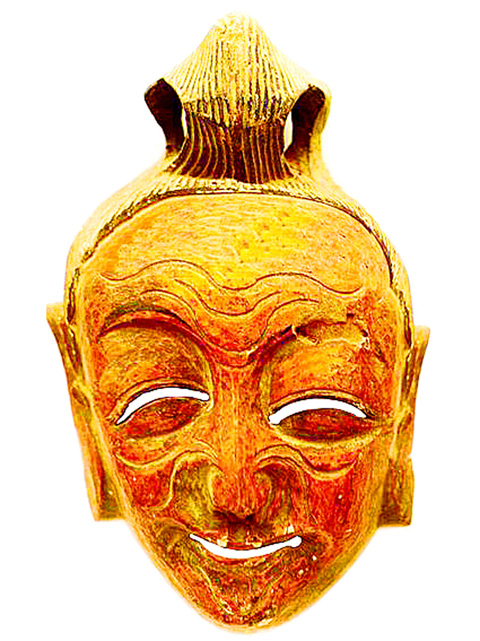
PHOTO COURTESY OF TAIPEI ARTS INTERNATIONAL ASSOCIATION
The play’s comic flavor is enhanced by Huang Hai-wei’s (黃海威) hand-carved wooden masks, which are inspired by the nuo (儺) masks of Sichuan Opera and Italian commmedia. With the exception of the scholar, executioner and his wife, all characters on the stage wear masks — another interesting reversal because in traditional Chinese theater only the lead characters on stage would wear masks.
But does the butcher end up living out his fantasies? You’ll have to watch the show to find out.
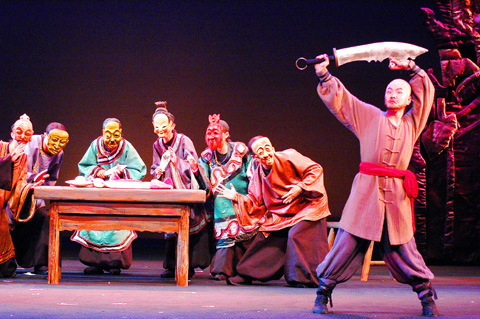
PHOTO COURTESY OF TAIPEI ARTS INTERNATIONAL ASSOCIATION
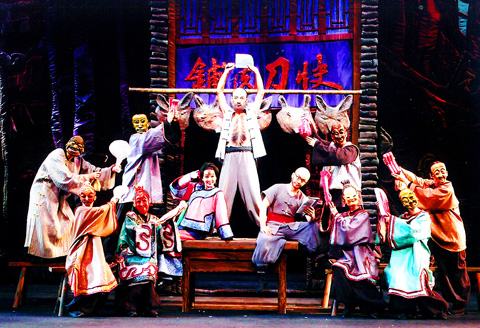
PHOTO COURTESY OF TAIPEI ARTS INTERNATIONAL ASSOCIATION
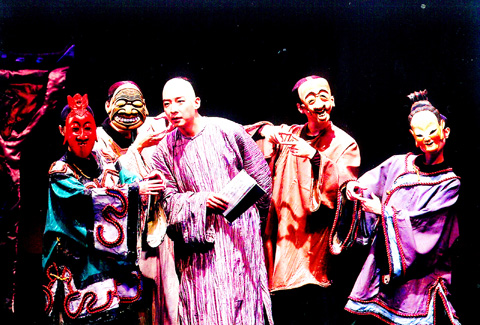
PHOTO COURTESY OF TAIPEI ARTS INTERNATIONAL ASSOCIATION

On April 26, The Lancet published a letter from two doctors at Taichung-based China Medical University Hospital (CMUH) warning that “Taiwan’s Health Care System is on the Brink of Collapse.” The authors said that “Years of policy inaction and mismanagement of resources have led to the National Health Insurance system operating under unsustainable conditions.” The pushback was immediate. Errors in the paper were quickly identified and publicized, to discredit the authors (the hospital apologized). CNA reported that CMUH said the letter described Taiwan in 2021 as having 62 nurses per 10,000 people, when the correct number was 78 nurses per 10,000

As Donald Trump’s executive order in March led to the shuttering of Voice of America (VOA) — the global broadcaster whose roots date back to the fight against Nazi propaganda — he quickly attracted support from figures not used to aligning themselves with any US administration. Trump had ordered the US Agency for Global Media, the federal agency that funds VOA and other groups promoting independent journalism overseas, to be “eliminated to the maximum extent consistent with applicable law.” The decision suddenly halted programming in 49 languages to more than 425 million people. In Moscow, Margarita Simonyan, the hardline editor-in-chief of the

Six weeks before I embarked on a research mission in Kyoto, I was sitting alone at a bar counter in Melbourne. Next to me, a woman was bragging loudly to a friend: She, too, was heading to Kyoto, I quickly discerned. Except her trip was in four months. And she’d just pulled an all-nighter booking restaurant reservations. As I snooped on the conversation, I broke out in a sweat, panicking because I’d yet to secure a single table. Then I remembered: Eating well in Japan is absolutely not something to lose sleep over. It’s true that the best-known institutions book up faster

Though the total area of Penghu isn’t that large, exploring all of it — including its numerous outlying islands — could easily take a couple of weeks. The most remote township accessible by road from Magong City (馬公市) is Siyu (西嶼鄉), and this place alone deserves at least two days to fully appreciate. Whether it’s beaches, architecture, museums, snacks, sunrises or sunsets that attract you, Siyu has something for everyone. Though only 5km from Magong by sea, no ferry service currently exists and it must be reached by a long circuitous route around the main island of Penghu, with the